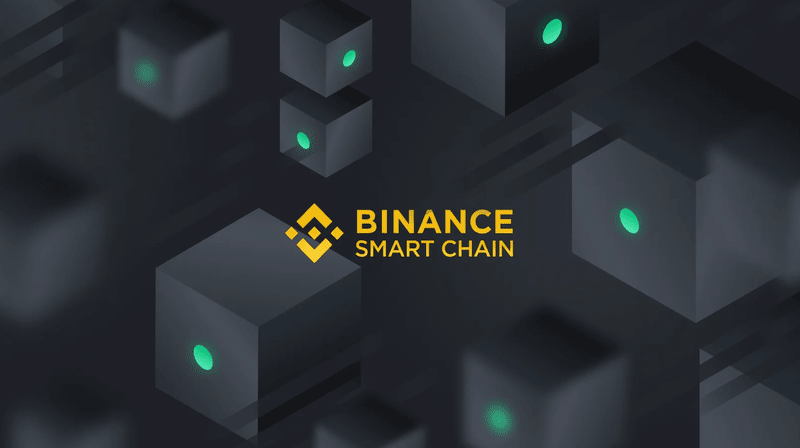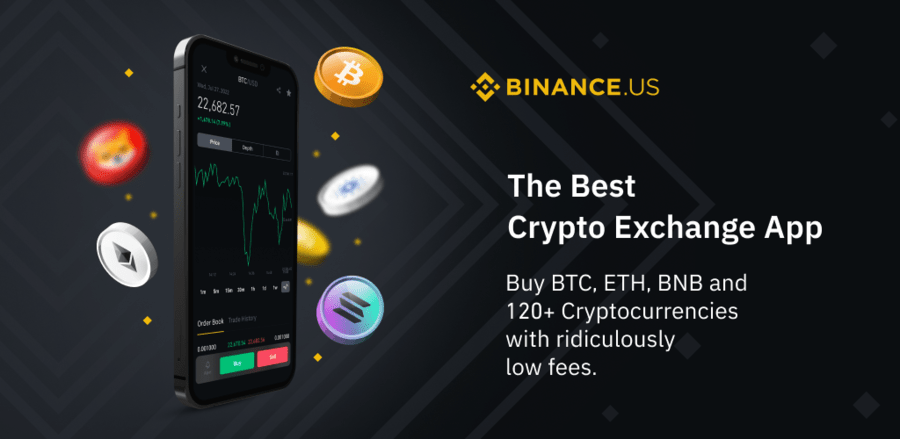*Disclaimer: The information provided here is for informational purposes only and does not constitute financial advice. Cryptocurrency trading involves risks, so please DYOR. For beginners, check out our Beginners Guides to learn more.

Binance
Binance: A Global Leader in Cryptocurrency Services
Founded in 2017 by Changpeng Zhao (CZ) and Yi He, Binance rapidly grew to become the world's largest cryptocurrency exchange by trading volume, a position it frequently maintains. Offering a vast ecosystem of services that extend far beyond simple buying and selling, Binance caters to a diverse global user base, from absolute beginners to sophisticated institutional traders. However, its journey has also been marked by significant regulatory challenges worldwide, shaping its operations and leadership. This article provides an overview of Binance's core offerings, features, security measures, and the evolving landscape it navigates.

Core Offerings and Ecosystem
Binance is renowned for the sheer breadth of its crypto-related services:
- Extensive Trading Platform: At its heart, Binance provides a robust trading engine supporting:
- Spot Trading: Buying and selling hundreds of cryptocurrencies, including majors like Bitcoin and Ethereum, and a vast array of Altcoins.
- Derivatives Trading: Offering futures contracts (perpetual and quarterly) and options, allowing traders to speculate on price movements or hedge positions with leverage (use with extreme caution).
- Margin Trading: Borrowing funds to amplify potential trading profits (and losses).
- Advanced Tools: Integration with TradingView charts, multiple order types (market, limit, stop-limit, OCO), and APIs for algorithmic trading cater to experienced users.
- Binance Earn (Passive Income): Users can potentially earn yield on their crypto holdings through various programs:
- Savings: Flexible and locked savings options offering interest on deposited crypto.
- Staking: Facilitating on-chain staking for various Proof-of-Stake coins, where Binance handles the technical process (custodially) and passes rewards back to users (minus a potential fee).
- Launchpool/Launchpad: Opportunities to earn new tokens from upcoming projects by staking existing assets like BNB or participating in token sales.
- BNB Chain Ecosystem: Originally launched as Binance Chain and Binance Smart Chain (BSC), now known as BNB Chain. This is a separate, high-throughput Blockchain ecosystem closely associated with Binance. It offers lower transaction fees and faster speeds compared to Ethereum's mainnet, fostering a large ecosystem of DeFi applications, games, and other dApps. It utilizes the BNB token for gas fees and governance.
- Additional Services: The platform also features:
- Binance NFT: A marketplace for buying, selling, and minting NFTs.
- Binance Pay: A service allowing users to pay merchants or send crypto to others using their Binance account.
- Binance Card: (Availability varies by region) A debit card allowing users to spend their crypto holdings wherever Visa/Mastercard is accepted.

Security Measures and User Protection
Given its scale, security is a critical focus for Binance:
- Account Security: Strong emphasis on user-side security, including mandatory Two-Factor Authentication (2FA) (Authenticator App recommended over SMS), Anti-Phishing Codes in emails, Withdrawal Address Whitelisting, and device management.
- SAFU (Secure Asset Fund for Users): Binance allocates a percentage of trading fees to this emergency insurance fund. It's intended to cover user losses in extreme cases, such as a platform hack, though the exact conditions and coverage limits are at Binance's discretion.
- Platform Security: Continuous investment in platform infrastructure security, risk monitoring systems, and threat intelligence.
Note: While Binance implements security measures, holding large amounts of crypto long-term on any centralized exchange carries inherent risks. Self-custody via personal wallets is recommended for maximum security. See: How To Store Crypto and How to Avoid Crypto Scams.
User Experience and Educational Resources
Binance attempts to cater to a wide audience:
- Interface Options: Often provides both simplified ("Lite") and advanced ("Pro") interfaces on its mobile and web platforms to suit different user comfort levels.
- Binance Academy: A widely respected, free educational portal offering articles, videos, and glossaries covering topics from basic blockchain concepts to intricate DeFi strategies.
- Global Support: Offers customer support channels and platform interfaces in multiple languages, reflecting its international user base.
Global Operations and Regulatory Scrutiny
Binance's rapid global expansion has brought it into frequent conflict with financial regulators worldwide. This remains a central aspect of its ongoing operations:
- Extensive Reach: The platform historically served users in over 180 countries, making it a truly global entity.
- Significant Regulatory Challenges: Binance has faced intense scrutiny, investigations, and enforcement actions from numerous regulatory bodies globally. Key concerns often cited include operating in jurisdictions without appropriate licenses, inadequate Know Your Customer (KYC) and Anti-Money Laundering (AML) procedures historically, and allegations of offering unregistered securities (particularly regarding certain services or the BNB token itself).
- Major US Settlement (Late 2023): A pivotal moment involved a comprehensive settlement with multiple US agencies (including the Department of Justice, Treasury - FinCEN/OFAC, and CFTC). This resulted in substantial fines ($4.3 billion), stringent ongoing compliance monitoring requirements, and founder Changpeng Zhao (CZ) stepping down as CEO. Richard Teng, a former regulator, assumed the CEO role, signaling a stronger focus on compliance.
- Market Adjustments: Regulatory pressures have forced Binance to withdraw from certain markets (e.g., Canada in 2023) or significantly alter the services offered in others (including stricter measures for US persons, who are directed to the separately operated, more limited Binance.US platform).
- Ongoing Scrutiny: Despite the US settlement, navigating the complex and evolving regulatory requirements in Europe (MiCA framework), Asia, and other regions remains a primary operational challenge and focus for Binance under its current leadership.

Points to Consider Before Using Binance
- Check Local Availability & Regulations: Crucially, verify if Binance (or its regional affiliate like Binance.US) is licensed to operate fully in your country/state and which specific services are legally available to you. Regulations can change rapidly.
- Regulatory Risk: Be aware that ongoing or future regulatory actions could potentially impact the platform's operations or your access to funds/services.
- Platform Complexity: The sheer number of features and trading options can be overwhelming for complete beginners compared to simpler exchanges.
- Custodial Risk: Remember that storing assets on Binance means you are entrusting their security and accessibility to the platform. It is not self-custody.
- Understand Fees: Familiarize yourself with Binance's fee schedule for trading (which often uses a tiered structure based on volume and BNB holdings), withdrawals (which vary per coin/network), and other services.
Conclusion
Binance remains the undisputed giant of the centralized cryptocurrency exchange world, offering an unmatched selection of assets and a deep suite of services for trading, earning yield, and engaging with the broader crypto ecosystem, including the influential BNB Chain. Its platform provides significant liquidity and drives innovation through initiatives like Launchpad.
However, its history is also marked by significant regulatory friction globally, culminating in major enforcement actions and a change in leadership. While Binance is now operating under increased compliance scrutiny, potential users must perform due diligence regarding its legal status and service availability in their specific jurisdiction. For experienced users seeking extensive features and deep liquidity, Binance remains a dominant force, but understanding the associated regulatory and custodial risks is essential.
Explore other platforms on our Exchanges page or learn more about exchanges and brokers in general in our guide: Understanding Crypto Exchanges.

